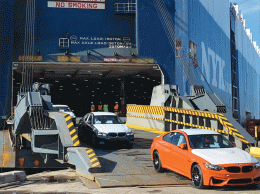
Jamshid Damooei
By Jamshid Damooei
A rise in nationalistic political leaders can be seen in every part of the world.
Recent developments in the United States, India, Asia and much of Europe provide multiple examples of this regressive political and economic development.
The idea of putting your country first stems from a deep and unrealistic notion that there is an undisputable first place when countries trade or have any economic ties with others in an interrelated and globally converging world. The proponents of such ideology assume that others need to accept their interest over their own, or else there will not be any relationship. The idea of win-win does not cross their minds.
It is bad enough to deal with a person with such a mindset. But when it becomes the declared policy of a nation, it opens the door to political conflict and even real war. Leaders who espouse an “our country first” mentality show skepticism or outright hostility toward multilateral institutions and global trade. Their leadership styles emphasize ethnic or group identification, distrust of immigrants and increased assertiveness that sometimes borders on aggression. There is a long record of such behavior over history. It is a shame that we have to relive the past.
Look at our own government’s recent moves to put tariffs on certain imports from China, threaten further restriction in the near future and declare a trade war against that country. We claimed victory before starting the war. Populist politicians demagogically put the blame on international trade, the offshoring of production and immigrants who are allegedly robbing native-born citizens of their jobs. Any credible research shows that the reality is that for every one job lost in the United States through international trade, there are three or four jobs that have been lost because of automation, robotics, information technology and other productivity-enhancing measures. If declaring war against what we do not like is a way of solving our problem, we should declare war against all reasons for losing jobs in the U.S. Resorting to war as a solution is irrational and a way of the past that has no place in our present time or conceivable future.
There are good reasons to renegotiate and bring about free and fair trade. These include job losses due to unfair business practices, predatory pricing, environmental and health concerns, lack of attention to worker safety and protections, and inability to internalize the costs from externalities of production and distribution. However, imposing tariffs in the absence of any of these problems is unrealistic and imprudent economic policy.
We should never engage in another trade war. Imposing tariffs on a product under the pretense of supporting the workers producing it domestically may benefit the producers and their workers by increasing the cost of imports. However, producers of items containing that product will suffer from the increased cost and their workers can lose their jobs.
If steel is subject to higher tariffs, the manufacturers of all products that use steel in their production have to bear a higher production cost and that will impact their workers.
Finally, all consumers will have to pay higher prices. The question is whose interest are we protecting? Furthermore, why are we covering up the inefficiency of our own producers?
Our trade relationships with China and other countries have great value in terms of our prosperity and the well-being of the world. They can be a gateway for solving our political differences, reducing poverty and creating a more peaceful world that is working its way toward greater economic convergence, which we will all desperately need in the years to come.
• Jamshid Damooei is chair of the Department of Economics, Finance and Accounting and director of the Center for the Study of Economics of Social Issues in the California Lutheran University School of Management.
.






 Print
Print Email
Email

















